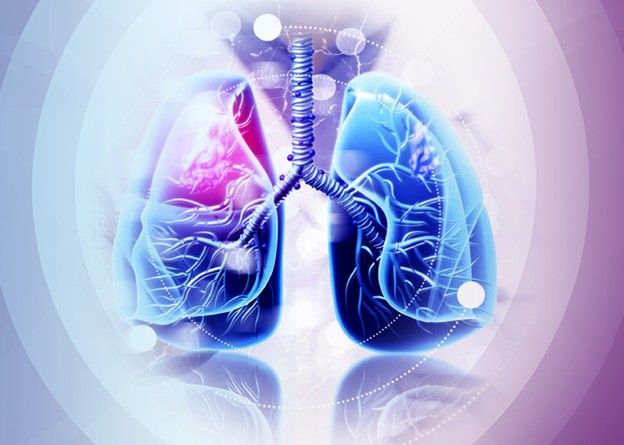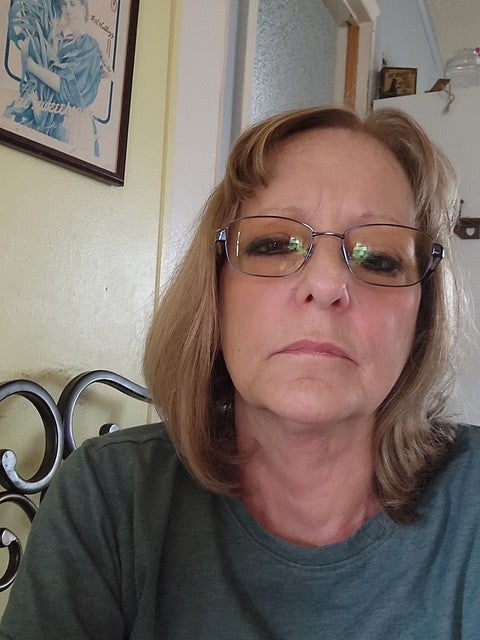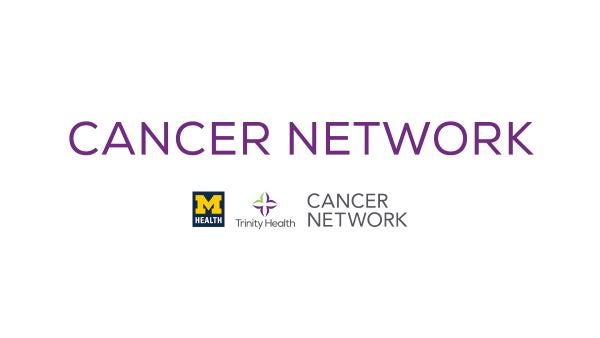From reluctance to gratitude
November 17, 2025
By: Val Enti
Categories: Cancer
Tags: Lung Cancer, lung cancer treatment, robotic assisted surgery, low dose lung CT scan
Debbie Smith didn’t expect a persistent cough in the summer of 2024 to change her life. She was focused on her husband’s recovery from quadruple bypass surgery in June. But the cough wouldn’t go away.
“I don’t know if it was the stress from that or what, but I had this terrible cough, and I was drinking cough medicine like it was soda pop. No matter what I did, it didn’t go away. So, I went to see my primary care physician (PCP) in July 2024 to see if she would write me a prescription because I thought I had bronchitis.”
Debbie’s low-dose CT scan
 Because her PCP hadn’t seen her for a while — and because Debbie had been a smoker for 45 years — in November 2024, Debbie’s physician ordered a low-dose lung CT scan.*
Because her PCP hadn’t seen her for a while — and because Debbie had been a smoker for 45 years — in November 2024, Debbie’s physician ordered a low-dose lung CT scan.*
According to the Centers for Disease Control and Prevention, smoking is still the No. 1 risk factor for lung cancer deaths.
After the scan, Debbie was referred to Pulmonologist Joanna Wieckowska, DO, Trinity Health Medical Group, Muskegon, who explained to Debbie and her husband that they found a nodule on Debbie’s left lung. Commonly called a “spot on the lung” or a “shadow,” a nodule is a round area that is denser than normal lung tissue. Dr. Wieckowska strongly urged Debbie to move to the next step — a biopsy.
“For months I hemmed and hawed. I thought if I ignored it, maybe it would go away. That was my thinking at the time. I didn’t want to admit it could be cancer. Whenever I saw that Dr. Wieckowska was calling me on my phone, I ignored it,” Debbie admitted.
Time went by and Debbie underwent two more low-dose CT lung scans and a breathing test ordered by Dr. Wieckowska. They revealed Debbie had chronic obstructive pulmonary disease (COPD) and emphysema, a specific type of COPD. But Debbie had not responded to Dr. Wieckowska’s messages concerning a biopsy — and the most recent scan indicated her nodule was significantly larger.
“I was concerned. I had to call her multiple times and explain to her that tissue sampling was imperative because this mass kept growing. I finally convinced her,” said Dr. Wieckowska.
Knowing her entire family was aware of her situation and would be bugging her until she acted, Debbie reluctantly agreed to complete a robotic-assisted bronchoscopy for the biopsy.
Debbie’s robotic-assisted bronchoscopy
Ion is a robotic-assisted bronchoscopy system that allows physicians to perform minimally invasive biopsies on small, hard-to-reach lung nodules. This advanced navigation technology creates a virtual map of the lungs for guiding a flexible catheter directly to the nodule. Ion enables accurate sampling with minimal damage to healthy tissue and provides faster answers about whether a nodule is benign or cancerous. It works in tandem with CT screening to support earlier detection and better outcomes.
So, at age 60, on March 25, 2025, Debbie underwent a biopsy using robotic-assisted bronchoscopy technology that revealed squamous cell lung cancer. This cancer is typically on the lining of the airways inside the lung. However, Debbie’s cancer was on the outside of the lung but still could be removed with surgery.
According to the Lung Cancer Foundation of America, squamous cell carcinoma is a cancer that begins in the flat, thin squamous cells that line the airways of the lung, like the lining of a pipe. They provide a barrier between the air in the lungs and the lungs themselves. This type of lung cancer develops when these cells become damaged or abnormal, and they begin to multiply.
Of all lung cancers, squamous cell carcinomas are the most common lung cancers found in smokers. Surgery is the most effective treatment for this type of lung cancer.
Debbie’s preparation for surgery
“The first thing I had to do before surgery was quit smoking, but smoking had been my crutch for everything for 45 years. Smoking to me was normal. I quit on April 3, cold turkey.”
She went from smoking a pack to a pack and a half each day to smoking no cigarettes.
On April 8, 2025, Debbie underwent a “left lateral muscle-sparing thoracotomy, left upper lobectomy with mediastinal lymph node dissection” at Trinity Health Muskegon.
A thoracic surgeon opened the side of her chest using a non-invasive procedure to remove the upper left lobe of her left lung. He also removed lymph nodes from the middle of her chest. Thankfully, Debbie’s lymph nodes were clear. Following surgery, Debbie’s official diagnosis was stage II lung cancer.
Debbie was hospitalized for five days following surgery and deeply appreciated her care.
“I had two of the best doctors (hospitalists) anyone could ask for. They were amazing. They were more like family than physicians. The nurses were awesome too.”
Debbie’s gratitude for her doctor’s life-saving persistence
Debbie can laugh now, but at the time, she was “annoyed” by Dr. Wieckowska’s persistent pleas to get a biopsy.
“She kept calling me, calling me, bugging me, and bugging me. After my surgery, I told her frankly, ‘You got on my nerves, so I would put my phone on silent.’”
And now? Debbie is beyond grateful for her pulmonologist.
“I would recommend Dr. Wieckowska to anyone. She was in the hospital the day after my surgery and came to check on me. She is amazing. When she calls me now, I tell her how grateful I am that she is in my life.”
Debbie’s follow-up six-month CT scan showed no signs of cancer. She will continue to see Dr. Wieckowska for regular monitoring over the next five years.
Debbie’s future
As a grandmother and great-grandmother, Debbie is looking forward to seeing all her grandchildren grow up. These days she takes care of her grandchildren full-time.
Dr. Wieckowska is optimistic about Debbie’s future.
“Debbie’s prognosis is very good. Her life expectancy is longer because we caught it early and removed the cancer.”
Learn more about lung cancer screening and treatment at Trinity Health Michigan.
*Lung cancer screening is recommended for adults aged 50 to 80 who are current or former smokers with a significant smoking history. Trinity Health also offers a free lung health assessment to help individuals understand their risk.




